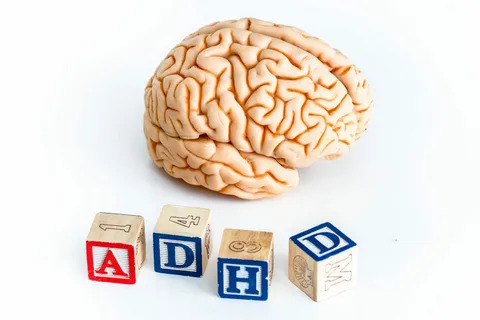Overview
The treatment of Attention-Deficit/Hyperactivity Disorder (ADHD) in adults and children has seen a rise in the usage of ADHD medications. Although these drugs can significantly enhance attention, focus, and impulse control in the short term, there has been continuous discussion and research over these drugs’ long-term consequences. This post will examine the latest findings regarding the long-term consequences of ADHD treatment, highlighting both potential advantages and drawbacks.
Comprehending ADHD Drugs
Prior to exploring the long-term implications, it is important to comprehend the kinds of drugs that are frequently prescribed for ADHD. Stimulants (such methylphenidate and amphetamine-based medications) and non-stimulants (like atomoxetine and guanfacine) are the two main categories of ADHD medications. These drugs function by interfering with the brain’s neurotransmitters, especially norepinephrine and dopamine, which are essential for focus, attention, and impulse control.
Benefits of ADHD Medication in the Short Term
When taken as prescribed and under medical supervision, ADHD medication can offer a number of immediate advantages, such as:
Better Attention and Focus:
Medication can help people with ADHD focus more intently and pay attention to what’s being done, which can increase productivity and academic achievement.
Decreased Hyperactivity and Impulsivity:
People who use medication to control their hyperactivity and impulsivity are better able to control their conduct.
Enhanced Executive Functioning:
Working memory, planning, and organizing are examples of executive functions that can be strengthened with medication. These abilities are frequently compromised in people with ADHD.
Effects of Time on Symptom Management
The majority of studies on the long-term impacts of ADHD medication concentrate on symptom management and long-term functional outcomes. These investigations have yielded several important conclusions, including:
Sustained Symptom Improvement:
According to longitudinal research, people with ADHD who take their medicine consistently over time report long-lasting reductions in their symptoms, which include impulsivity, hyperactivity, and difficulty paying attention.
Improved Academic and Occupational Functioning:
Among people with ADHD, long-term medication use has been linked to better graduation rates, better occupational outcomes, and improved academic performance.
Decreased Risk of Substance Abuse:
Research indicates that people with ADHD who are appropriately medicated may be less likely to develop substance use issues in the future, refuting earlier worries.
Effects on the Nervous System and Intelligence
Research on the effects of long-term ADHD medication on brain structure, function, and cognitive development is also interesting. The following are some salient observations:
Brain Anatomical alterations:
Research has shown that long-term ADHD medication users’ brains exhibit some mild anatomical alterations, mostly in the areas pertaining to attention and impulse control. The clinical importance of these modifications is still up for discussion, though.
Cognitive Functioning:
Studies show that consistent long-term pharmaceutical use is typically linked to stable or enhanced cognitive functioning, encompassing executive, memory, and attention spans. The enhancement of cognitive abilities leads to an overall improvement in day-to-day functioning.
Risk of Psychiatric Comorbidities:
According to longitudinal research, taking medication consistently may lower the chance of acquiring anxiety and depression, two psychiatric comorbidities that are frequently linked to ADHD.
Possible Issues and Things to Think About
According to recent research, the long-term benefits of ADHD medication are typically beneficial; nevertheless, there are a few issues and factors that should be taken into account:
Cardiovascular Health:
Certain drugs, especially stimulants, can raise blood pressure and heart rate. Monitoring for potential cardiovascular hazards is needed for long-term usage, particularly in persons with pre-existing heart issues.
Growth & Development:
While the research is still preliminary and may differ between individuals, some studies have shown concerns about the effects of long-term stimulant use on these processes.
Psychosocial Factors:
To guarantee that people with ADHD receive complete assistance, long-term medication use should be taken into account in the larger framework of psychosocial interventions, such as behavioral therapies and academic accommodations.
Tailored Therapeutic Strategies
Considering the complexity of ADHD and its management, a customized strategy is needed. Long-term treatment regimens should consider various factors, including age, intensity of symptoms, comorbidities, and individual response to medicines.
Frequent Monitoring:
In order to evaluate symptom management, keep an eye out for any adverse effects, and make the necessary dosage or treatment plan modifications, healthcare professionals should regularly monitor patients using long-term ADHD medication.
Comprehensive Care:
In order to address all facets of the problem, long-term management of ADHD should entail a multidisciplinary approach involving cooperation between parents, educators, healthcare professionals, and persons with ADHD.
Shared Decision-Making:
When making informed decisions about long-term medicine use, open communication, shared decision-making, and taking into account personal preferences and objectives are all important.
In summary
In summary, recent studies on the long-term consequences of ADHD medication point to generally favorable results in terms of better functional outcomes, a decreased chance of specific negative outcomes, and sustained symptom improvement. Long-term ADHD care, however, requires constant observation, customized treatment plans, and thoughtful assessment of possible risks. People with ADHD can improve their quality of life and long-term results by being informed, working with healthcare professionals, and pursuing a holistic approach to treatment.


